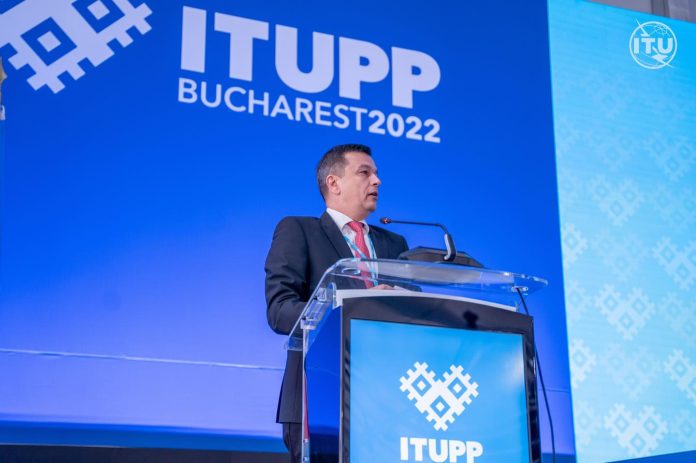Romania will spend 1.8 billion euros for digital development, the most significant financial contribution included in the National Recovery and Resilience Plan, the Minister of Transport, Sorin Grindeanu, said on Monday, at the opening of the global conference of the International Telecommunication Union organized in Bucharest, according to Agerpres.
„We benefit from quality and affordable services. We are proud of our specialized workforce in the IT field. Romania occupies the leading position in all global statistics of digital development: 85% of fixed wireless internet connections allow download speeds of at least 100 Mbps. With all, however, we are aware that our efforts to develop this area must continue. We are considering further developing digital public services, connectivity, cyber security, and digital skills. To this end, we have committed to spend 1.8 billion euros for Romania’s digital development, the most significant financial contribution to Romania’s development included in the National Recovery and Resilience Plan (PNRR),” Grindeanu wrote on his Facebook page.
He stated that it is an honor for Romania to be the host country of the Conference of Plenipotentiaries of the International Telecommunication Union because it confirms the progress made in the last decade by our country in this field.
Last but not least, he conveyed that „the way we live and use this technological advance dictates the development of our economies and societies.”
Over 3,000 leaders and delegates from 193 countries gather in Bucharest between September 26 and October 14, 2022, to set the global direction of the digital transformation and to elect the future leadership of the International Telecommunication Union – agency of the United Nations for information and communication technology.
Romania is the first country in the European Union to organize this large-scale event, where will be established the general policies of the ITU, as well as the strategic and financial plans for the period 2024 – 2027, which cover the entire activity of the organization, but, first of all, critical issues around digital inclusion and bridging the digital divide, how best to leverage artificial intelligence (AI), the Internet of Things (IoT) and 5G and next to 6G networks, along with other new and emerging technologies.
Agerpres


